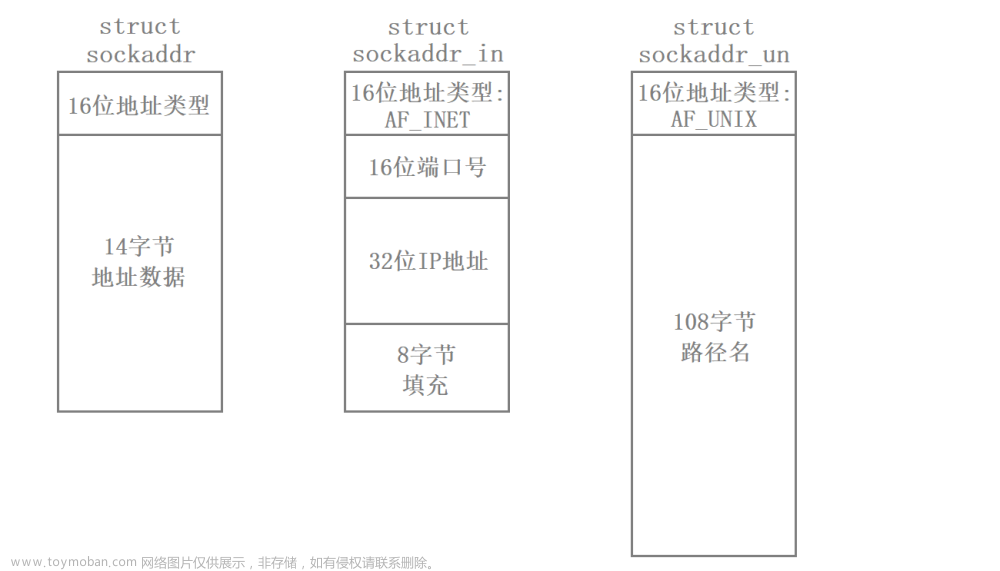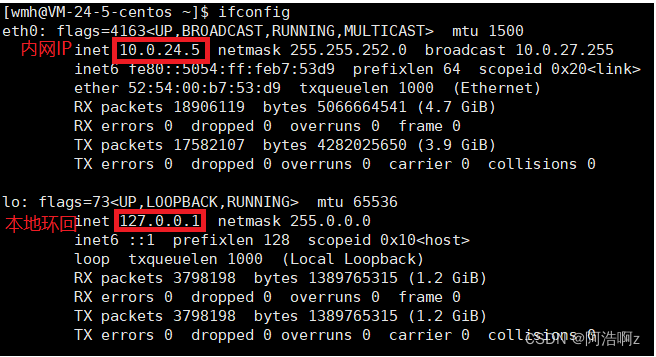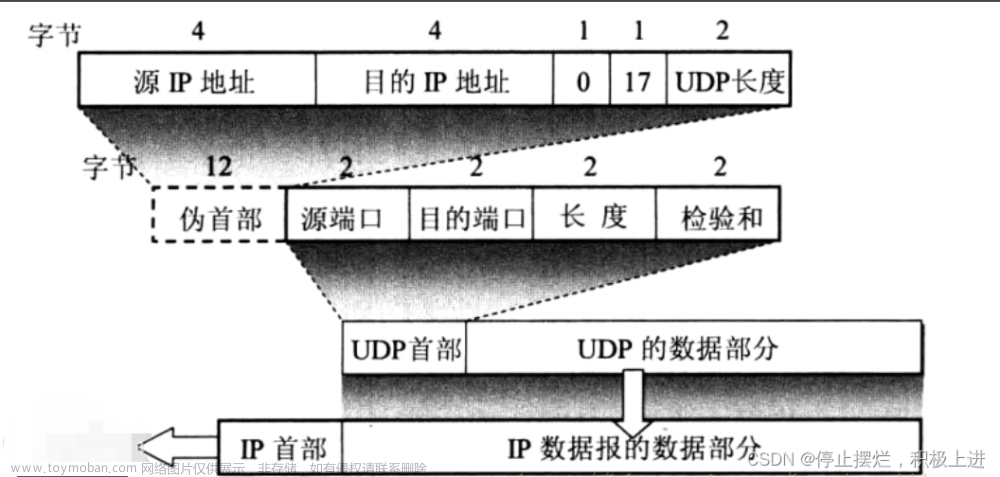一、引入
在上一章【网络编程】demo版UDP网络服务器实现实现了客户端和服务端之间的数据的发送与接收,上一章我们是直接让服务端把接收到的数据打印出来。
但是服务端并不是只接收到数据就完了,它还要处理任务。
所以我们可以在服务端设置一个回调函数:
typedef std::function<void(std::string, uint16_t, std::string)> func_t;
用来处理接收到的信息。
二、翻译软件实现
2.1 加载字典
要实现客户端发送一个单词,接收到服务端翻译的结果。
那么首先需要把英语和汉语加载进unordered_map词典中。
static std::unordered_map<std::string, std::string> Dict;
从文件中把数据加载进词典中:
const std::string path = "./Dict.txt";
static std::unordered_map<std::string, std::string> Dict;
// 分割字符串
static bool cutstring(std::string s, std::string *key, std::string *val)
{
size_t pos = s.find(":");
if(pos == std::string::npos)
{
return false;
}
*key = s.substr(0, pos);
*val = s.substr(pos + 1);
return true;
}
static void InitDict()
{
std::ifstream ifs(path);
if(!ifs.is_open())// 打开失败
{
std::cout << "ifstream open fail" << std::endl;
exit(1);
}
std::string sline;
std::string key, val;
while(getline(ifs, sline))// 按行读取
{
if(cutstring(sline, &key, &val))
{
Dict.insert({key, val});
}
else
{
std::cout << "cutstring fail" << std::endl;
exit(1);
}
}
ifs.close();
std::cout << "Dict Load Success\n";
}
2.2 处理数据并传递给用户端
接下来处理数据并且要把处理的结果反馈给用户端。
处理数据比较简单:
std::string res;
auto it = Dict.find(msg);
if(it == Dict.end())
{
res = "not find";
}
else
{
res = it->second;
}
接下来要把res发送给客户端,经过前面的学习sendto需要构建一个结构体表示要传给谁。
构建完结构体使用sendto的时候发现要有文件描述符,所以调用回调函数的时候要把_sockfd传递进去。
// 回调方法
void handler(int _sockfd, std::string ip, uint16_t port, std::string msg)
{
std::string res;
auto it = Dict.find(msg);
if(it == Dict.end())
{
res = "not find";
}
else
{
res = it->second;
}
struct sockaddr_in si;
bzero(&si, sizeof si);
si.sin_family = AF_INET;
si.sin_port = htons(port);
si.sin_addr.s_addr = inet_addr(ip.c_str());
sendto(_sockfd, res.c_str(), res.size(), 0, (struct sockaddr*)&si, sizeof si);
}
2.3 客户端获取结果
// 获取结果
char buf[1024];
sockaddr_in tmp;
socklen_t tmplen = sizeof tmp;
size_t n = recvfrom(_sockfd, buf, sizeof buf - 1, 0, (struct sockaddr*)&tmp, &tmplen);
if(n > 0) buf[n] = 0;
std::cout << "翻译结果:" << buf << "\n";
2.4 结果
客户端:
服务端:
2.5 执行命名功能
现在我们可以做一个小小的改动,不让服务端做翻译了,而是处理任务,例如我们发送pwd,他要返回服务端此时的路径。
这里其他的逻辑都不用变,只需要修改回调函数即可。
介绍一个命令行解析接口:popen
#include <stdio.h>
FILE *popen(const char *command, const char *type);
int pclose(FILE *stream);
先回忆一下之前手写的建议shell【linux】进程控制详述,我们首先要命令行分割,把每个选项都提取出来,然后fork创建子进程再程序替换。
而这个函数包含了上述的所有功能,并且还多了一个创建管道的功能。
参数介绍:
command:传递进来的字符串,比如ls -a -ltype:以什么方式打开文件(r/w/a)
比方说现在以r只读方式打开,就直接从管道中提取出结果。
void execcommand(int _sockfd, std::string ip, uint16_t port, std::string msg)
{
std::string res;
FILE* fp = popen(msg.c_str(), "r");
if(fp == nullptr) res = msg + " execute fail";
else
{
char line[1024];
while(fgets(line, sizeof line, fp))
{
res += line;
}
}
pclose(fp);
struct sockaddr_in si;
bzero(&si, sizeof si);
si.sin_family = AF_INET;
si.sin_port = htons(port);
si.sin_addr.s_addr = inet_addr(ip.c_str());
sendto(_sockfd, res.c_str(), res.size(), 0, (struct sockaddr*)&si, sizeof si);
}
客户端:
服务端:
三、网络聊天室实现
聊天室是什么远离呢?我们发送消息会进过服务端的转发,让每个在线的客户端都能看到发送的消息,这样就实现了群聊。
每个客户端发送一个online表示上线了,服务端就会把所有的数据都发送给上线的客户端。
所以首先我们先要把所有的用户管理起来。
3.1 管理用户
对于每个用户我们用IP和port来标识唯一性。
class User
{
public:
User(const std::string& ip, const uint16_t& port)
: _ip(ip)
, _port(port)
{}
public:
std::string _ip;
uint16_t _port;
};
对于每个用户我们可以用哈希表来管理:
class OnlineUsers
{
public:
void adduser(const std::string& ip, const uint16_t& port)
{
std::string id = ip + "@" + std::to_string(port);
users.insert({id, User(ip, port)});
}
void deluser(const std::string& ip, const uint16_t& port)
{
std::string id = ip + "@" + std::to_string(port);
users.erase(id);
}
bool isonline(const std::string& ip, const uint16_t& port)
{
std::string id = ip + "@" + std::to_string(port);
return users.find(id) != users.end();
}
private:
std::unordered_map<std::string, User> users;
};
在回调函数中,如果收到的消息是online,就把用户添加进哈希表。如果是offline,就从哈希表中删除。
if(msg == "online") onlinemap.adduser(ip, port);
if(msg == "offline") onlinemap.deluser(ip, port);
3.2 发送消息
我们要发送消息其实就是给哈希表中所有的用户都sendto消息。在这之前要先判断是否在线:
void groupmsg(int _sockfd, std::string ip, uint16_t port, std::string msg)
{
if(msg == "online") onlinemap.adduser(ip, port);
if(!onlinemap.isonline(ip, port))// 不在线
{
struct sockaddr_in si;
bzero(&si, sizeof si);
si.sin_family = AF_INET;
si.sin_port = htons(port);
si.sin_addr.s_addr = inet_addr(ip.c_str());
std::string res = "你还没有上线,请先上线";
sendto(_sockfd, res.c_str(), res.size(), 0, (struct sockaddr*)&si, sizeof si);
return;
}
// 广播消息
}
现在要广播消息,那么就在OnlineUsers类中增加一个广播消息的成员函数。
它的参数要包含_sockfd, msg,还要有是谁发送的(ip, port)。
void broadmsg(int _sockfd, const std::string& msg, std::string ip, uint16_t port)
{
for(auto& e : users)
{
struct sockaddr_in si;
bzero(&si, sizeof si);
si.sin_family = AF_INET;
si.sin_port = htons(e.second._port);
si.sin_addr.s_addr = inet_addr(e.second._ip.c_str());
std::string res = ip + "@" + std::to_string(port) + "# ";
res += msg;
sendto(_sockfd, res.c_str(), res.size(), 0, (struct sockaddr*)&si, sizeof si);
}
}
3.3 多线程处理
因为客户端不能立即收到消息打印出来(阻塞停留在接收消息),为了解决这个问题我们可以使用多线程,一个线程专门接收消息,一个线程专门发送消息。
那么我们可以让主线程负责发送消息,子线程负责接收消息。文章来源:https://www.toymoban.com/news/detail-448893.html
static void* getmsg(void *args)
{
pthread_detach(pthread_self());
int sockfd = *(static_cast<int*>(args));
while(1)
{
char buf[1024];
sockaddr_in tmp;
socklen_t tmplen = sizeof tmp;
size_t n = recvfrom(sockfd, buf, sizeof buf - 1, 0, (struct sockaddr*)&tmp, &tmplen);
if(n > 0) buf[n] = 0;
std::cout << buf << "\n";
}
}
void start()
{
pthread_create(&_get, nullptr, getmsg, (void*)&_sockfd);
struct sockaddr_in si;
bzero(&si, sizeof(si));
si.sin_family = AF_INET;
si.sin_addr.s_addr = inet_addr(_serverip.c_str());
si.sin_port = htons(_serverport);
std::string msg;
while(1)
{
std::cout << "Please input: ";
std::cin >> msg;
sendto(_sockfd, msg.c_str(), msg.size(), 0, (struct sockaddr*)&si, sizeof si);
}
}
3.4 结果
服务端:
客户端:
这里因为只有一个终端所以打印的比较混乱,但是能看到现象就行,如果想要优化就可以把输出的数据重定向到管道文件中,再打开一个终端读取管道,这样就可以实现发送和获取两个窗口。文章来源地址https://www.toymoban.com/news/detail-448893.html
四、源码
//UDPClient.hpp
#pragma once
#include <iostream>
#include <string>
#include <cerrno>
#include <sys/types.h>
#include <sys/socket.h>
#include <unistd.h>
#include <arpa/inet.h>
#include <strings.h>
#include <netinet/in.h>
#include <string.h>
#include <cassert>
#include <pthread.h>
class UDPClient
{
public:
UDPClient(const std::string& serverip, const uint16_t& port)
: _serverip(serverip)
, _serverport(port)
, _sockfd(-1)
{}
void InitClient()
{
// 创建套接字
_sockfd = socket(AF_INET, SOCK_DGRAM, 0);
if(_sockfd == -1)
{
std::cerr << "socket error" << errno << " : " << strerror(errno) << std::endl;
exit(1);
}
}
static void* getmsg(void *args)
{
pthread_detach(pthread_self());
int sockfd = *(static_cast<int*>(args));
while(1)
{
char buf[1024];
sockaddr_in tmp;
socklen_t tmplen = sizeof tmp;
size_t n = recvfrom(sockfd, buf, sizeof buf - 1, 0, (struct sockaddr*)&tmp, &tmplen);
if(n > 0) buf[n] = 0;
std::cout << buf << "\n";
}
}
void start()
{
pthread_create(&_get, nullptr, getmsg, (void*)&_sockfd);
struct sockaddr_in si;
bzero(&si, sizeof(si));
si.sin_family = AF_INET;
si.sin_addr.s_addr = inet_addr(_serverip.c_str());
si.sin_port = htons(_serverport);
std::string msg;
while(1)
{
std::cout << "Please input: ";
std::cin >> msg;
sendto(_sockfd, msg.c_str(), msg.size(), 0, (struct sockaddr*)&si, sizeof si);
}
}
private:
uint16_t _serverport;
std::string _serverip;
int _sockfd;
pthread_t _get;
};
// UDPClient.cc
#include "UDPClient.hpp"
#include <memory>
int main(int argc, char* argv[])
{
if(argc != 3)
{
std::cout << "incorrect number of parameters" << std::endl;
exit(1);
}
std::string ip = argv[1];
uint16_t port = atoi(argv[2]);
std::unique_ptr<UDPClient> ptr(new UDPClient(ip, port));
ptr->InitClient();
ptr->start();
return 0;
}
// UDPServer.hpp
#pragma once
#include <iostream>
#include <string>
#include <cerrno>
#include <sys/types.h>
#include <sys/socket.h>
#include <unistd.h>
#include <arpa/inet.h>
#include <strings.h>
#include <netinet/in.h>
#include <string.h>
#include <cassert>
#include <functional>
static const std::string defaultip = "0.0.0.0";// 默认IP
typedef std::function<void(int, std::string, uint16_t, std::string)> func_t;
class UDPServer
{
public:
UDPServer(const func_t& func, const uint16_t& port, const std::string ip = defaultip)
: _port(port)
, _ip(ip)
, _sockfd(-1)
, _func(func)
{}
void InitServer()
{
// 创建套接字
_sockfd = socket(AF_INET, SOCK_DGRAM, 0);
if(_sockfd == -1)
{
std::cerr << "socket error" << errno << " : " << strerror(errno) << std::endl;
exit(1);
}
// 绑定IP与port
struct sockaddr_in si;
bzero(&si, sizeof si);
si.sin_family = AF_INET;// 协议家族
si.sin_port = htons(_port);// 端口号,注意大小端问题
// si.sin_addr.s_addr = inet_addr(_ip.c_str());// ip
si.sin_addr.s_addr = INADDR_ANY;
// 绑定
int n = bind(_sockfd, (struct sockaddr*)&si, sizeof si);
assert(n != -1);
}
void start()
{
char buf[1024];
while(1)
{
struct sockaddr_in peer;
socklen_t len = sizeof peer;
ssize_t s = recvfrom(_sockfd, buf, sizeof(buf) - 1, 0, (struct sockaddr*)&peer, &len);
if(s > 0)
{
buf[s] = 0;// 结尾
std::string cip = inet_ntoa(peer.sin_addr);
uint16_t cport = ntohs(peer.sin_port);
std::string msg = buf;
//std::cout << "[" << cip << "@" << cport << "]# " << msg << std::endl;
_func(_sockfd, cip, cport, msg);
}
}
}
private:
uint16_t _port;
std::string _ip;
int _sockfd;
func_t _func;
};
// UDPServer.cc
#include "UDPServer.hpp"
#include "users.hpp"
#include <memory>
#include <cstdio>
#include <unordered_map>
#include <fstream>
const std::string path = "./Dict.txt";
static std::unordered_map<std::string, std::string> Dict;
// 分割字符串
static bool cutstring(std::string s, std::string *key, std::string *val)
{
size_t pos = s.find(":");
if(pos == std::string::npos)
{
return false;
}
*key = s.substr(0, pos);
*val = s.substr(pos + 1);
return true;
}
static void InitDict()
{
std::ifstream ifs(path);
if(!ifs.is_open())// 打开失败
{
std::cout << "ifstream open fail" << std::endl;
exit(1);
}
std::string sline;
std::string key, val;
while(getline(ifs, sline))// 按行读取
{
if(cutstring(sline, &key, &val))
{
Dict.insert({key, val});
}
else
{
std::cout << "cutstring fail" << std::endl;
exit(1);
}
}
ifs.close();
std::cout << "Dict Load Success\n";
}
// 回调方法
void handler(int _sockfd, std::string ip, uint16_t port, std::string msg)
{
std::string res;
auto it = Dict.find(msg);
if(it == Dict.end())
{
res = "not find";
}
else
{
res = it->second;
}
struct sockaddr_in si;
bzero(&si, sizeof si);
si.sin_family = AF_INET;
si.sin_port = htons(port);
si.sin_addr.s_addr = inet_addr(ip.c_str());
sendto(_sockfd, res.c_str(), res.size(), 0, (struct sockaddr*)&si, sizeof si);
}
void execcommand(int _sockfd, std::string ip, uint16_t port, std::string msg)
{
std::string res;
FILE* fp = popen(msg.c_str(), "r");
if(fp == nullptr) res = msg + " execute fail";
else
{
char line[1024];
while(fgets(line, sizeof line, fp))
{
res += line;
}
}
pclose(fp);
struct sockaddr_in si;
bzero(&si, sizeof si);
si.sin_family = AF_INET;
si.sin_port = htons(port);
si.sin_addr.s_addr = inet_addr(ip.c_str());
sendto(_sockfd, res.c_str(), res.size(), 0, (struct sockaddr*)&si, sizeof si);
}
OnlineUsers onlinemap;
void groupmsg(int _sockfd, std::string ip, uint16_t port, std::string msg)
{
if(msg == "online") onlinemap.adduser(ip, port);
if(msg == "offline") onlinemap.deluser(ip, port);
if(!onlinemap.isonline(ip, port))// 不在线
{
struct sockaddr_in si;
bzero(&si, sizeof si);
si.sin_family = AF_INET;
si.sin_port = htons(port);
si.sin_addr.s_addr = inet_addr(ip.c_str());
std::string res = "你还没有上线,请先上线";
sendto(_sockfd, res.c_str(), res.size(), 0, (struct sockaddr*)&si, sizeof si);
return;
}
// 广播消息
onlinemap.broadmsg(_sockfd, msg, ip, port);
}
int main(int argc, char* argv[])
{
if(argc != 2)
{
std::cout << "incorrect number of parameters" << std::endl;
exit(1);
}
//InitDict();
uint16_t port = atoi(argv[1]);
std::unique_ptr<UDPServer> ptr(new UDPServer(groupmsg, port));
ptr->InitServer();
ptr->start();
return 0;
}
// users.hpp
#pragma once
#include <iostream>
#include <string>
#include <unordered_map>
#include <sys/types.h>
#include <sys/socket.h>
#include <unistd.h>
#include <arpa/inet.h>
#include <strings.h>
#include <netinet/in.h>
#include <string.h>
class User
{
public:
User(const std::string& ip, const uint16_t& port)
: _ip(ip)
, _port(port)
{}
public:
std::string _ip;
uint16_t _port;
};
class OnlineUsers
{
public:
void adduser(const std::string& ip, const uint16_t& port)
{
std::string id = ip + "@" + std::to_string(port);
users.insert({id, User(ip, port)});
}
void deluser(const std::string& ip, const uint16_t& port)
{
std::string id = ip + "@" + std::to_string(port);
users.erase(id);
}
bool isonline(const std::string& ip, const uint16_t& port)
{
std::string id = ip + "@" + std::to_string(port);
return users.find(id) != users.end();
}
void broadmsg(int _sockfd, const std::string& msg, std::string ip, uint16_t port)
{
for(auto& e : users)
{
struct sockaddr_in si;
bzero(&si, sizeof si);
si.sin_family = AF_INET;
si.sin_port = htons(e.second._port);
si.sin_addr.s_addr = inet_addr(e.second._ip.c_str());
std::string res = ip + "@" + std::to_string(port) + "# ";
res += msg;
sendto(_sockfd, res.c_str(), res.size(), 0, (struct sockaddr*)&si, sizeof si);
}
}
private:
std::unordered_map<std::string, User> users;
};
到了这里,关于【网络编程】UDP简单实现翻译软件与网络聊天室的文章就介绍完了。如果您还想了解更多内容,请在右上角搜索TOY模板网以前的文章或继续浏览下面的相关文章,希望大家以后多多支持TOY模板网!













